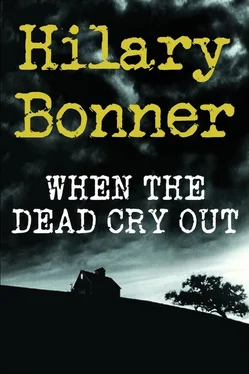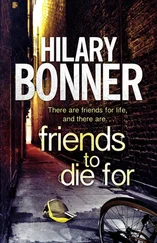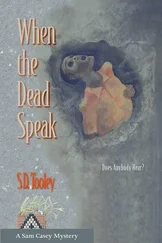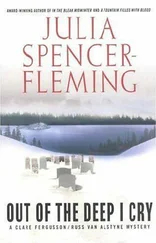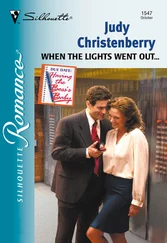She had jumped into bed with a married junior officer regardless of the consequences — consequences Cooper had already made all too clear. His manner towards her that morning left her in little doubt that he wanted nothing more to do with her, and that he already regretted what had passed between them. She was quite sure that their working relationship would never be the same again. That friendly easy camaraderie was lost forever. She had blown something good and replaced it with an out-and-out mess.
Typical , she thought. And what a day to choose. This was an all-round disaster day.
Heaving a big sigh she picked up the phone to inform the chief constable of all that had happened. For several seconds she sat with the receiver in her hand before ultimately forcing herself to dial the number of the Exeter HQ. Harry Tomlinson was going to be delighted, and he did not disappoint her.
The chief constable’s reaction, although predictable, was more extreme than anything Karen had yet encountered in her dealings with him. He went through the roof. Previously he had always niggled, been sarcastic, been pompously self-righteous, huffed and puffed a bit. But Karen had never known him really lose his temper before. It wasn’t Tomlinson’s style. And being on the receiving end was not a pleasant experience at all.
“If there’s ever been a sloppier example of policing than this, then I’ve never heard of it, Detective Superintendent,” he stormed.
Karen winced. For once she could not find fault with the CC’s judgment and she had no answer for him. She had said much the same to Cooper, after all. The only problem was that she was the senior investigating officer and the buck stopped with her. Which Harry Tomlinson went on to point out.
“Be sure of one thing, Superintendent, if heads are going to roll over this mess, mine will not be among them.”
“Absolutely, sir,” said Karen. She would always have expected the CC to offer up any of his officers as a sacrifice in order to save his own skin. But on this occasion she could not entirely blame him.
By the time she left for home that night she felt utterly beaten. And she was quite convinced that the worst was still to come.
The wait for the DNA tests seemed like forever even though it was only six days. When they eventually came through everybody’s worst fears were realized. The tests proved positive DNA matches for Jennifer Roth both with Richard Marshall and with samples taken from the skeleton recovered from the sea, the skeleton which had been proven beyond all reasonable doubt to be the remains of Clara Marshall. This time the mitochondrial DNA, evident only in the female line, extracted from her bones was able to do its job, even though it unfortunately confirmed the result Karen had been dreading. Jennifer Roth was the daughter of Richard and Clara Marshall, just as she claimed. The solicitor she had employed, for whose services she would, to Karen’s further annoyance, almost certainly get legal aid, immediately filed an application to the Criminal Case Review Board for the right to take Richard Marshall’s case to the Court of Appeal in London.
Karen felt a sense of impending doom. She really didn’t see how she and her team were going to wriggle their way out of this one. Any halfway decent lawyer would now be able to tie the prosecution case in knots. It was true that Marshall had never been charged with murdering his children, that the only charge against him had been for killing his wife, but nonetheless the disappearance of all three members of his family without trace had been fundamental to the prosecution’s success. And now one of the daughters presumed killed along with her mother had turned up, not only alive and well, but singing the praises of her father and prepared to give evidence in support of his innocence.
Jennifer Roth’s whole story of her unorthodox adoption and the death of her adoptive parents checked out. A false birth certificate had indeed been obtained for her — no doubt by the ever-devious Marshall, Karen reckoned, just as Jennifer had suggested, but she knew she would never be able to prove that either — and Jennifer Roth’s doting substitute parents had painstakingly built a new identity for her around it. No trace of Lorraine Marshall was found and Richard Marshall refused to give any information on her alleged adoption on the grounds that he did not want the completely new life he believed his elder daughter to have to be upset in any way.
Karen was convinced that Jennifer’s evidence was at least highly suspect. She believed that the young woman was severely disturbed, but Jennifer Roth had no history of any mental illness, and although Karen would have loved to have been able to make her see a criminal psychiatrist she had no way of forcing her to do so and, naturally, Jennifer turned down the suggestion that she might like to seek psychiatric guidance in view of her traumatic childhood experiences and the effect they may have had on her.
It was all an absolute disaster. And to make matters worse, as soon as news of the appeal, on the grounds of new evidence, broke, the press were on to it like a kennel full of terriers, sniffing and nipping their way to yet another series of splash headlines on the Marshall case.
No details of the appeal were released, of course, but Torquay Police Station, in common with most, Karen thought, leaked like a sieve. One of the first and most disconcerting press calls she received, on the very day that the appeal was announced, was, predictably enough, from John Kelly. It shook her into a stupid reaction.
“I just want you to tell me that what I’ve heard is wrong,” he began.
Karen found herself playing cat and mouse with him. She had little choice.
“And what might that be?” she enquired, trying desperately to sound unconcerned.
“As if you don’t know.”
“Kelly, I do know that you think you’re the greatest fucking hotshot newspaper reporter who ever walked this earth, but the information you glean from the various lowlifes you hang out with is not always fucking sacrosanct.”
She regretted the outburst as soon as she had made it.
Kelly did not respond in kind. There was a pause, and when he spoke again his voice was very quiet and strained.
“I heard that Jennifer Roth is claiming to be Richard Marshall’s daughter,” he said simply.
Karen sighed. She still didn’t know how to deal with this, but she was, in spite of her display of anger against him, glad at least that it was Kelly who was on the line with it, and not some anonymous flash young hack from London.
“Look, John,” she began, her voice as quiet as his now and the use of his Christian name was not usual for her. “Look, even if that were true, you couldn’t print it, an appeal’s been filed—”
Kelly interrupted her.
“I do know the law, Karen. I am aware of all the implications. And I can’t think of anything more likely to get that bastard’s conviction overturned. I just want to know for myself. It’s important to me...”
His voice trailed off.
Karen sighed again. She’d always trusted Kelly and he’d never let her down yet. She’d only rounded on him out of sheer frustration, and she hoped he knew that, because she wasn’t going to tell him so. That would be going too far.
“It’s true, and it’s indisputable,” she admitted. “We’ve had DNA tests done.”
“Ah.” Kelly sounded as down as she felt. “Thanks, Karen. I did need to know.”
He’d rung off then, abruptly, leaving Karen feeling slightly puzzled. Why was it so important to Kelly, she wondered? Why did he need to know? This was a seriously great story, of course, and John Kelly had been involved from the very beginning. But Karen felt there was more to it than that. She remembered again Bill Talbot’s words in the pub, about how much it mattered to Kelly. But the reporter had shown no inclination whatsoever to share his motivation on this with her. She made a mental note to phone Bill Talbot that evening and ask him what he had meant.
Читать дальше
